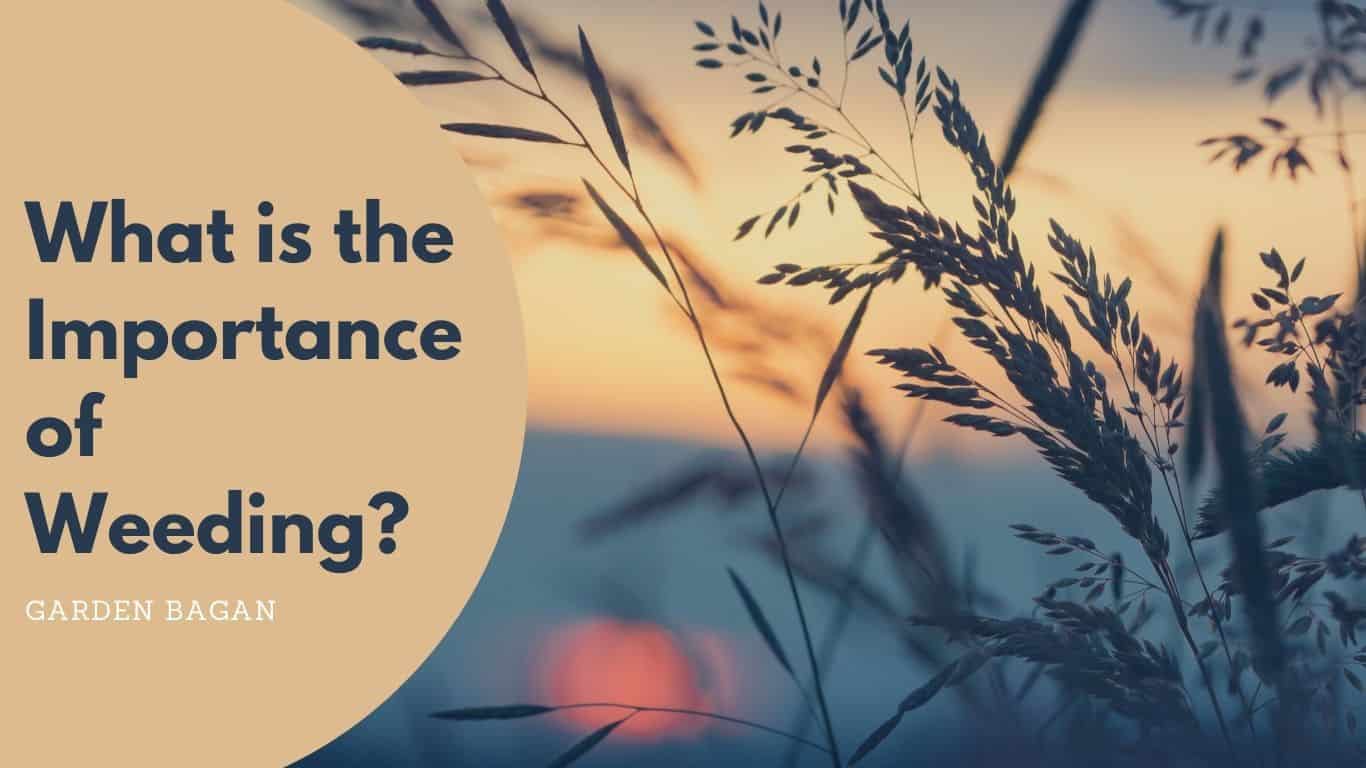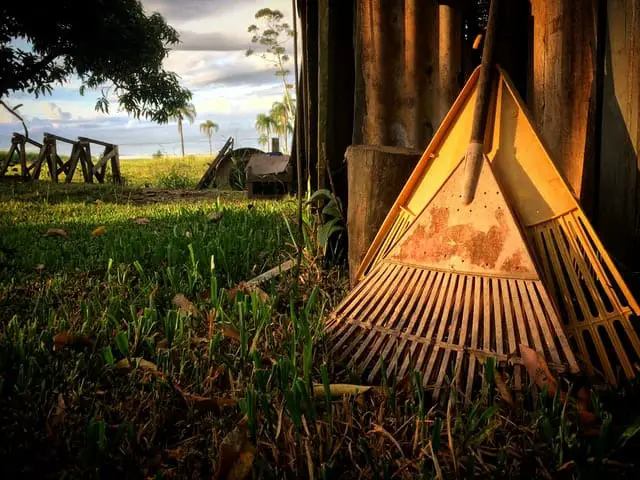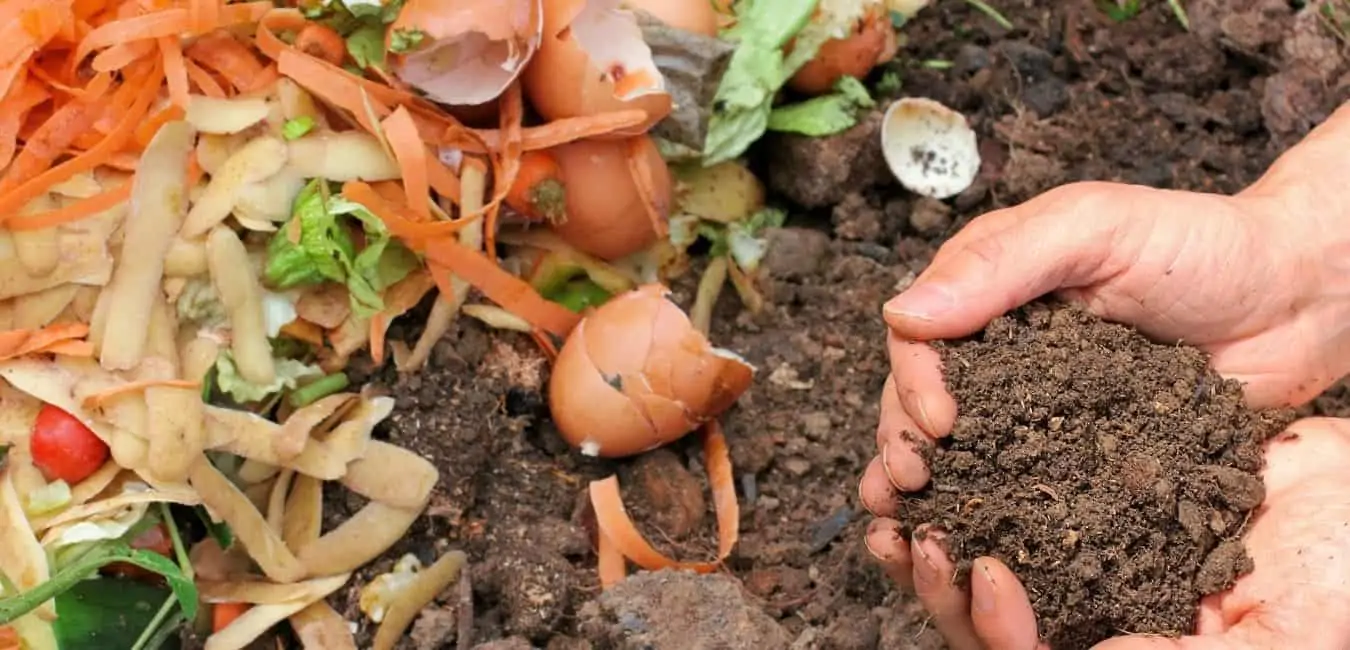Unnecessary grass or weed growth is a headache for every gardener. Too much growth makes the garden look untidy. If the extra growth is any unwanted grass or weed. Then it can be a problem for the flowers and veggies. So Removing these weeds and cleaning the occupied area is the best option. That’s why today we will discuss the Importance of Weeding? Every gardener should be familiar with the concept and details of weeding. It is an essential gardening task that not only keeps your garden tidy but also protects the plants from nutrient deficiency. If you are a passionate gardener and want to learn every bit of it then this article is for you. Keep reading and learn more about garden care.

Check out my previous post: Common Pests and Diseases in Chilli Pepper Plants
What is Weeding?
Weeding is a simple gardening term that suggests the removal of any unwanted plant. Removing grass or any unnecessary plant growing around a tree or a useful plant is called weeding.
It is a collective process of keeping the garden clean and plants healthy. This includes the identification of any unwanted plants in a batch of useful ones.
Sometimes, a plant acts as a weed in one situation will its a useful one in another location. Amaranth is a good example of weed.
It is an invasive weed that grows quickly by consuming all the nutrients from the soil as fast as it can. This suppressive nature of amaranth can pose threat to the plant growing near it. Those plants can subside due to a lack of water and nutrients. Although Amaranth is a healthy leafy vegetable that contains a lot of minerals and vitamins. If you grow them in separate garden beds then they are good otherwise they can act as a serious weed threat to other plants.
Many other plants fall in this dual category. Therefore, You must identify their impact and then remove if necessary for the sake of other plants.
How do weeds grow without the introduction of any seeds?
First of all the term weed here does not resemble any specific plant. These are the unwanted plant that occupies a garden space or any container without your notice. Indeed, we don’t sow seeds for these unwanted weeds. Then where do they come from and How?
The answer is pretty simple. Unwanted seeds especially the light tine ones can easily travel through air and water. The soil you are using may also contain some of these seeds. Other than these many seeds can spread through pests, animals as well as our clothes. So there is no definite path to protect.
Many of these seeds can stay alive and dormant in the soil for years waiting for favorable growing conditions. Once, they get proper temperature, moisture, and media like soil, they grow and thrive as soon as they can. These seeds have an instinct to grow as fast as they can. They need to grow and reproduce faster to ensure the continuation of their hierarchy.
Different Methods of Weeding
You can either remove weeds manually from your bare hands or use any handheld gardening tools. Manual weeding is effective in small gardens, containers, or isolated garden beds. It will require time and patience to remove weeds one by one.

Gardening Tools like spades or trowels can ease out this process by saving a lot of time and effort. You must use these tools to save time and effort. Also, some plants are tough enough for your bare hands. Even some types of grass have deep tangled roots, you can’t easily pull these out with your hands. It will break from the top and the roots will sprout again in a few days. So the use of tools is inevitable in these situations.
Several weeding machines are indeed available for this job. Although most of those tools are of no use for backyard gardeners. Those machines require bigger plowing areas like commercial farms. That’s why I always recommend regular manual weeding with common handheld tools. Most of these gardening tools are low-cost and very easy to use.
Check out: Garden Works to do in Winter? Lawn Winter Care.
Importance of Weeding
Do you know what is the importance of weeding? If not then don’t worry we’ll discuss it here. At least you are now clear with the terms weed and weeding.
Weeds are the unwanted plants in your garden that bother other flowers and veggies. Weeding is simply the removal of weeds from your garden. The term weed is not related to any particular plant. not with its obvious contender. So keep the discussion generic.
Regular weeding helps in keeping your garden clean and tidy. It reduces the load on the soil as well as the plants that grow in it. Weeds compete with the surrounding plants and trees for nutrition, water, and precious root spaces.
Removing these weeds can help loosen the soil and provide room for the root system of other plants. Fewer plants simply mean less requirement of nutrition and water. Therefore, proper weeding can also reduce fertilizer needs. It can save you a lot of money that you may have to spend on fertilizers.
Excessive weed growth can obstruct the natural airflow in the garden. They also act as a breeding ground for several bugs and pests. So weeding can also help with pest control and keep your garden healthy.
Importance of Weeding: It can help you with-
- Maintaining a clean and tidy garden.
- Reduce nutrition, water, and space load on soil.
- Save a lot of money that you may have spent on excessive fertilizers.
- Maintain proper airflow between plants in the garden.
- Naturally, control pests attacks and disease spread in the garden.
Is it necessary to remove Weeds?
It is necessary to remove weeds especially if you want other plants to grow and thrive properly. Weeds not only occupy space in your garden. They also consume the nutrients for the soil. These nutrients are originally provided for your flowers and vegetables.
In the scarcity of nutrition, the plant will slow down its metabolic activities. You will see lesser blooming and frequent drop-in fruit production.
Too much weed growth can root bound other plants. This will result in shunted plant growth and less fruit production.
If the problem persists for long or you forgot to weed properly then other plants may die. Annual flowering plants and delicate vegetables are more susceptible to excessive weed growth. Especially the flowers with bulbs and corms react adversely to root-bound and nutrient deficiency. Leafy vegetables also can’t tolerate weed growth. Weeds of any kind are more deadly for plants in containers. Lack of room for root growth gives them no chance for survival.
Therefore, you should follow a scheduled weeding cycle to ensure healthy plant growth in the garden.
Also read: Spring Yard Clean up List: Garden Preparation
Are Weeds Useful or Harmful for other Garden Plants?
It is really important to understand that once we call a plant weed, it becomes harmful for others. The whole concept of weed relates to those plants that are of no use in the garden.
So you can simply say weeds are harmful to other garden plants. They are aggressive in nutrient consumption as well as growth. It can lead to nutrient deficiency for the vegetables and flowers that you need.
Most plants with a fast growth rate can become aggressive weeds if not controlled properly. They will consume faster than others and it can become a problem.
Therefore, Remove any plant from the garden or container if you identify it as a weed. The term weed is not related to any particular plant species. Whichever plant is harmful to others can be considered a weed and must be discarded ASAP.
What to do with Weeds and Grass after weeding?
Once you are done with weeding, the final job is to sort them according to any specific use. Some of these plants can be consumed so if you need them have them. Others may work great for mulching so use them accordingly.

If nothing works for you then dump all of the clipped grass, leaves, and weeds in the compost bin and forget about it. The waste will become gold as of the worthy organic compost within a couple of months. You can use this compost to feed your plants and share extra compost with your neighbors.
If you want to know more then read: How Do I Start Composting? at my Home Garden
In commercial farming, the leftover of previous season crops, grass, or weeds are turned into the soil. It only requires a couple of turns to the topsoil subsequently in 3 to 4 weeks. Everything will decompose and mix into the soil. The next crop will get all the necessary nutrients from it.
Similarly, you can also dig down the soil and dump the weeds in it. Make sure none of them contains any seed otherwise the whole effort weeding will be waisted. The seed will germinate and occupy the space again.
